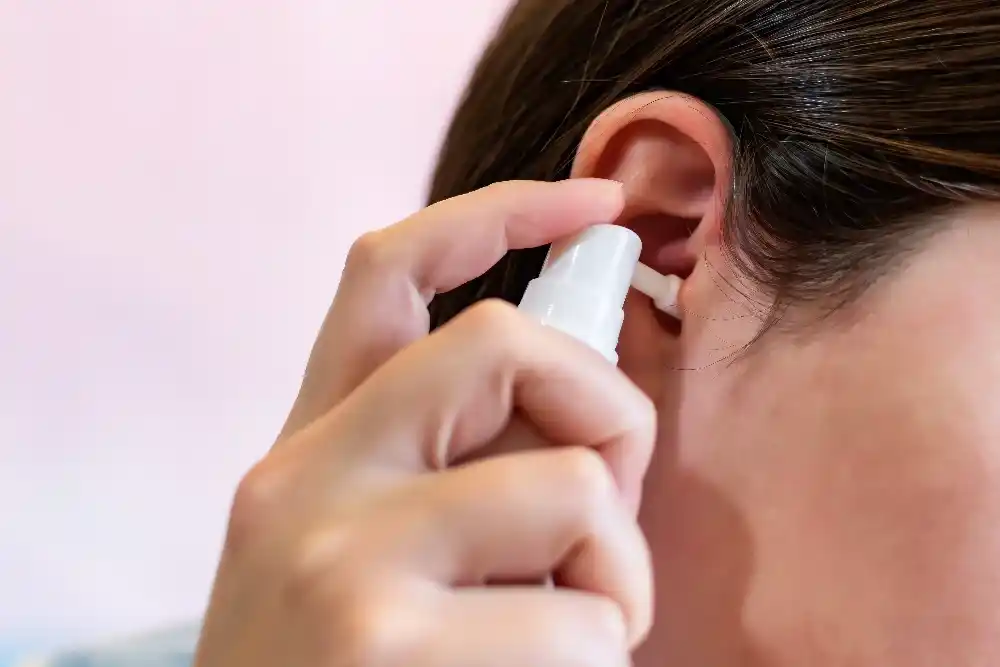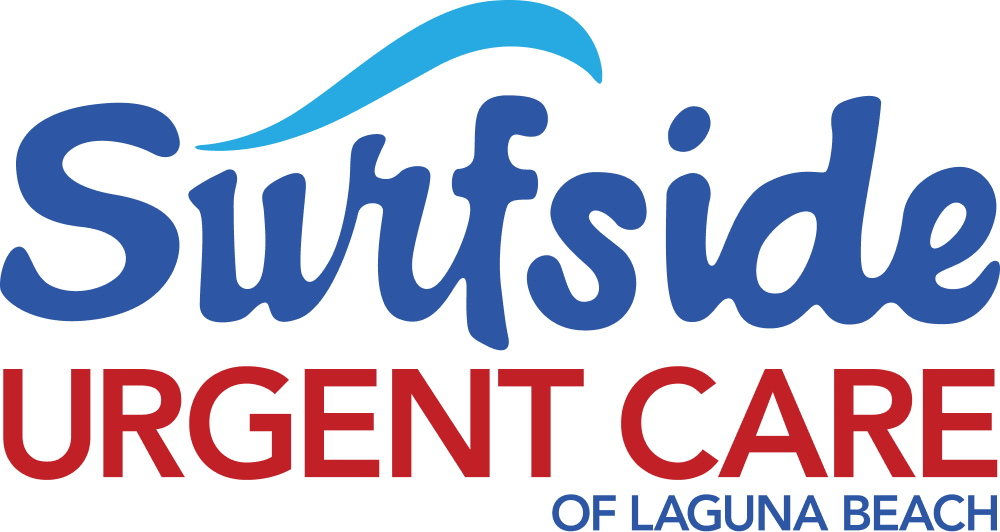Why Do My Ears Feel Blocked During Allergy Season?

If you’re among the many people suffering from seasonal allergies, you’ve probably asked yourself: Why do my ears feel blocked when my allergies flare up? That annoying, stuffed-up sensation can be more than an inconvenience, affecting your hearing, balance, and comfort. From pressure changes to muffled sounds, blocked ears allergies are a frustrating symptom that can catch many allergy sufferers off guard.
Let’s examine how allergies impact your ears, why they happen, and most importantly, what you can do about them.
Can Allergies Cause Blocked or Clogged Ears?
Yes, absolutely. Allergies can cause your ears to feel plugged, tight, or uncomfortable. While most people expect symptoms like sneezing or itchy eyes, blocked ear allergies are just as common and irritating.
How Allergies Affect the Ears
When allergens like pollen, dust, or pet dander enter your system, your immune system reacts. It releases chemicals, including histamines, to fight off the allergens. Unfortunately, this immune response causes inflammation in the nasal passages, throat, and even the Eustachian tubes—the narrow channels that connect your middle ear to your throat.
The Connection Between Nasal Congestion and Ear Pressure
Your ears, nose, and throat are all linked. When your sinuses become congested, it can block the Eustachian tubes. These tubes are responsible for balancing pressure between your ears and the atmosphere. When they’re swollen or inflamed, pressure builds up behind the eardrum. That’s why ears clogged from allergies are so common during allergy season.
Why Your Ears Feel Stuffy or Popped During Allergy Season
Do you ever feel like you’re descending on an airplane, even sitting at home? That popping or fullness in the ears is your body trying to equalize pressure. When the Eustachian tubes can’t function properly due to swelling or mucus buildup, your ears can feel stuck or muffled. This explains why stuffy ears and allergies often go hand in hand.
Common Symptoms of Allergy-Related Ear Congestion
Not sure if your ears are reacting to allergies? Here are a few symptoms to watch out for:
Muffled Hearing or Sensation of Fullness
One of the most reported signs is muffled hearing. Sounds may feel dull, or you might constantly try to “pop” your ears. This feeling of fullness is classic for allergies and clogged ears.
Ear Popping or Clicking
You might notice clicking noises when you swallow or yawn. These are attempts by your Eustachian tubes to open and balance pressure.
Mild Dizziness or Imbalance
Your inner ear helps with balance. When pressure builds up, it can affect your stability. Feeling slightly off-balance or dizzy is a lesser-known sign of ears stopped up allergies.
Pressure Behind the Eardrum
Some people describe it as a pushing or pressing sensation. This can make lying down uncomfortable or even turning your head too quickly.
What Causes Ears to Feel Blocked From Allergies?
It’s not just random—medical reasons exist behind this annoying problem.
Eustachian Tube Dysfunction
As mentioned earlier, inflammation from allergies causes swelling in the Eustachian tubes. When these tubes can’t open properly, air gets trapped, leading to pressure and discomfort. This is one of the most common causes of ears clogged from allergies.
Sinus Inflammation Spreading to the Ear Canal
Swollen sinuses can create a domino effect. The congestion often spreads toward the ear canals, worsening the pressure and creating blocked ears allergies symptoms.
Histamine Response and Fluid Buildup
When your immune system releases histamines, blood vessels swell and fluids leak into nearby tissues. This fluid buildup can collect in the middle ear, increasing pressure and sometimes leading to temporary hearing loss
How to Relieve Clogged Ears Caused by Allergies
Luckily, there are several ways to get some relief if you’re dealing with ears stopped up allergies.
Antihistamines and Decongestants

Antihistamines can help reduce the allergic reaction, while decongestants help shrink swollen nasal passages and Eustachian tubes. Together, they target the root cause of stuffy ears and allergies.
Nasal Irrigation or Saline Sprays
Rinsing out allergens and mucus from your nasal passages can reduce congestion and help relieve pressure in the ears. Saline sprays are gentle and effective for daily use.
Gentle Ear Pressure Techniques (e.g., Valsalva maneuver)
Try holding your nose, closing your mouth, and gently blowing to “pop” your ears. This maneuver helps open blocked Eustachian tubes—but don’t force it.
Steam Inhalation or Warm Compresses
Warm, moist air can help thin mucus and open airways. Use a steamy shower or warm compress over your sinuses and ears for relief.
Tips to Prevent Allergy-Related Ear Blockage
Prevention is better than a cure. Here’s how to stay ahead of the allergy season.
Monitor Pollen and Allergen Levels
Use apps or websites to track pollen counts in your area. On high pollen days, stay indoors or wear a mask when outside.
Use HEPA Filters and Maintain Clean Air Indoors
A good air purifier with a HEPA filter can trap allergens like dust, pollen, and pet dander. Keeping windows closed and cleaning regularly helps too.
Manage Allergy Triggers Year-Round
Don’t wait for allergy season to take action. Use allergy medication consistently, avoid known triggers, and consult with an allergist for a treatment plan.
FAQs
How long do ears stay blocked from allergies?
It varies. For some, it’s a few hours; for others, it can linger for days. If symptoms persist for more than a week, seek medical advice.
Can allergy medicine help unclog ears?
Yes. Antihistamines and decongestants can reduce swelling and mucus, which helps open the Eustachian tubes and relieve pressure.
Is it safe to use ear drops for allergy-related pressure?
Generally, ear drops don’t help much with allergy-related blockage unless there’s an infection. Focus on treating the underlying allergies instead.
It varies. For some, it’s a few hours; for others, it can linger for days. If symptoms persist for more than a week, seek medical advice.
Yes. Antihistamines and decongestants can reduce swelling and mucus, which helps open the Eustachian tubes and relieve pressure.
Generally, ear drops don’t help much with allergy-related blockage unless there’s an infection. Focus on treating the underlying allergies instead.
When to Seek Urgent Care for Stuffy or Blocked Ears
Most of the time, allergy-related ear issues go away with home remedies and medications. But there are times when you shouldn’t ignore the signs.
If you experience severe ear pain, sudden hearing loss, high fever, or symptoms lasting longer than a week, it’s time to seek medical help. Sometimes what feels like blocked ears allergies could be an ear infection or something more serious.
If you’re in Laguna Beach and struggling with allergies and clogged ears, Surfside Urgent Care of Laguna Beach is here to help. Their experienced staff can quickly diagnose the issue and provide effective treatment so you can breathe—and hear—easier again.
Don’t let allergy season ruin your day. Visit Surfside Urgent Care today or call ahead to schedule a same-day appointment. Relief is just around the corner!

